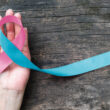Back in August 2022, we reviewed The Happy Girl’s Guide to Being Whole: What You Never Knew about Your Natural Body, written by women’s health nurse practitioner and Creighton Model medical practitioner Teresa Kenney. In an interview with NW, Kenney addresses why preteens, teens, and young women should learn fertility awareness, the change she’s seen in what her young patients are seeking when they walk into her office, the potential pitfalls of many period apps, and more.
If you’re a mom of a preteen daughter, stay tuned til the end of the interview to learn more about the exciting new program Natural Womanhood is developing to help you start discussing menstrual cycles and fertility with your daughter in an easy, natural way…
Why is it so important that we teach teen girls and young women about ovulation and their menstrual cycle health?
Kenney affirmed, “Number one, the menstrual cycle is a vital sign of your health. If you are a woman, you know that at some point in your reproductive life, you’re going to have some change in your menstrual cycle. Something is going to occur that makes you ask, ‘is this normal? Or is this not normal?’ And if we have no sense of how our bodies work, no sense of the cycle, then how do we go forward as women, empowered to be able to advocate for what’s best for our bodies?”
Is [this reproductive symptom] normal?
Asked for an example of something that might cause a young woman to ask ‘is this normal?’ Kenney answered, “In the book, we give case studies for this reason, because we want young women to see themselves and say ‘Oh, this sounds like me.’ So, for example, take an athlete who is running track or playing soccer and her cycles are disrupted. She skips a period, she skips three periods. And she’s wondering, ‘is that normal? Should I see a doctor?’
Kenney affirmed, “It’s not normal, of course, to skip the menstrual cycle. The menstrual cycle tells us that our body is functioning normally and healthily, and our hormones actually help us feel well. They help our brains function, they help our bones stay strong, they help our heart stay healthy. If we lose our menstrual cycle, there’s a risk to our health, especially if that goes on for a long period of time.”
The solutions young women receive from mainstream medicine often aren’t real solutions at all
Unfortunately, Kenney said, “we know that many times if a girl goes to an OB/GYN [with abnormal bleeding, missing periods, etc.], she presents herself as ‘this is what’s happening. Doctor, I’d like to know why.’ But many times she doesn’t find out ‘why.’” Instead, “So often it’s just ‘you have a symptom with your cycle, and now I’m going to give you this one pill solution [hormonal birth control].’ Women then go away thinking that everything is solved, but in reality, they now just have a pseudo-cycle that band-aids over the problem” without actually fixing anything.
Asked what reaction young women have to learning about how their bodies actually work, and how they respond to deep dive medical workups—when necessary—to discover the root causes of cycle abnormalities, Kenney said that women commonly express surprise, frustration, and even anger at all they have never been told, whether in sex-ed, from their OB/GYN, etc. She related that time and again women are shocked when, for instance, she teaches them that they don’t have a true period while taking the Pill. She gave a specific example of a young woman who’d listened to The Hormone Genius podcast (which Kenney co-hosts) and was horrified when she realized that nearly a decade of taking the Pill had done nothing to solve the underlying issue she went to her doctor for in the first place. The young woman went on to found a blog devoted to helping other women learn what’s going on—and when to seek help—in their own reproductive systems.
Should teen girls still chart their menstrual cycles, even if they don’t have any cycle issues?
While many young women experience irregular bleeding, heavy periods, painful periods, ovarian cysts, or other reproductive health issues, Kenney stressed that charting for fertility awareness is important regardless of whether someone is experiencing symptoms of a problem. In her words, “It’s essential for young women to know how their body works. It may seem weird for them to start talking about their mucus, but I assure them that even if it doesn’t seem worthwhile now, within a few years this information will become important to you, whether because you have a cycle problem or because you’re dating or engaged and considering getting pregnant. This is vital information. Why would we wait to give that to you?”
Why many charting apps are just a ‘glorified rhythm method’
Just because there’s a proliferation of femtech apps, Kenney cautions, doesn’t mean there’s been an explosion in young women’s awareness of how their own bodies actually work, or in knowledge of how to read their signs of fertility. She observed, “98% of the time in my office, when I ask ‘do you track your period in your phone?’ they say ‘yeah, yeah.’ And I say, ‘ok, thank you, that’s so great. Can you tell me when you ovulate?’”
Usually the young women tell Kenney, “‘Yeah, I totally can.’ They pull out their phone and say, ‘look, it tells me I’m going to ovulate in two weeks!’ And I always tell them the same thing, ‘well, unless you peed on your phone [referencing the Marquette Method’s use of the ClearBlue fertility monitor to test urinary hormone levels], your phone can’t give you that information. Your body gives you that information.’ So there’s this moment when young women are like, ‘ohhh.’”
Kenney continued, “The phone is like a glorified rhythm method that our now great-grandparents would have used. It’s just trying to take retrospective information to predict a future event. But the reality is that science now allows us to receive real-time data to identify fertility as it is occurring” as with evidence-based fertility awareness methods (or natural fertility methods, as Kenney refers to them in her book) that utilize biomarkers like cervical mucus, basal body temperature (BBT), and/or urinary hormone testing.
Young women’s expectations of what women’s healthcare looks like are slowly changing
Kenney has over two decades of experience as a women’s health nurse practitioner, and she’s observing a gradual but distinct sea-change in the patients that walk through her doors. “In the last ten years especially, I’ve noticed a whole younger generation that seems to be concerned about having control over decisions about their body, but they’re not settling anymore for the doctor just saying ‘this is it. [Birth control] is your only option [for whatever the reproductive problem is].’ They really desire authentic information and they want all of it—they don’t just want to be told what to do.”
Kenney also frequently cares for women concerned that they may have trouble getting pregnant in the future, even if childbearing isn’t anywhere on the horizon. “Young women are asking this question more and more, ‘when I want to be able to have a baby, will I be able to?’ Even women who aren’t yet married or trying to conceive are asking this question, and I think that’s good, because it will lead women to desire to understand what’s good for their bodies and what’s not.”
Kenney emphasized that the patient, not the healthcare provider, is the true change agent when it comes to seeking holistic healthcare that values fertility as an indicator of hormonal and overall health, and that digs for root causes when issues arise rather than ‘band-aiding’ over symptoms with hormonal birth control. When patients demand better, healthcare providers eventually have to shift their approach and provide more and better options.
The real-life impact authentic women’s healthcare can have, starting from a young age
Kenney’s book is geared towards teaching teens and young women in high school and college all the things they likely didn’t learn in sex-ed. Programs like Couple to Couple League’s mother-daughter program and the Guiding Star Project Cycle Show aim to reach young girls even sooner, at the onset of puberty. And soon, Natural Womanhood’s own Moms of (Pre)Teens program will give mothers the tools to start having easy, natural conversations about cycles and fertility with their daughters even earlier! Kenney sees this early education in the truths of the goodness and beauty of the female body’s design as leading to “groundedness. It’s very important to her ability to respect and love herself, know herself, and that will guide her well. Hormones are so important, and being disconnected from our hormones does not serve us well. A woman who is integrated and knows her body is a powerful woman.”
Kenney gave a real-world example of a young woman (who gave permission for her story to be shared) who read The Happy Girl’s Guide and uses a natural fertility method to chart her cycle and for family planning purposes. The young woman is a dancer on Broadway, and during downtime at a dance rehearsal, the other dancers were all complaining about problems with their birth control. One of the dancers eventually noticed that the woman who uses FAM was quiet, and she asked ‘What sort of birth control do you use?’ When the FAM user told them about charting her cycle and how she used that information, the other dancers were first in disbelief, and then hooked on every word. Some went on to have conversations with their doctors about their birth control, and others looked into the Hormone Genius podcast.
Teen girls and young women deserve to know the content Kenney, Natural Womanhood, and many other individuals and organizations share through articles, books, and programs. Whereas previously finding an in-person instructor could be very difficult depending on where in the country or world a young woman lived, now a plethora of resources are available at the touch of a screen. Kenney believes that when young women know how their bodies were designed, they are empowered to make the best decisions for their own health and in turn to seek respect from others. For this reason, the future of women’s healthcare, in her eyes, is quite bright.
Additional Reading:
FAM Basics: What can charting your menstrual cycle tell you about your hormonal health?
FAM Basics: Why you really need to learn from a fertility awareness instructor







